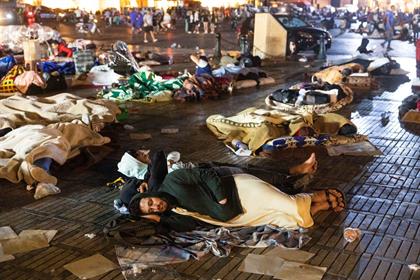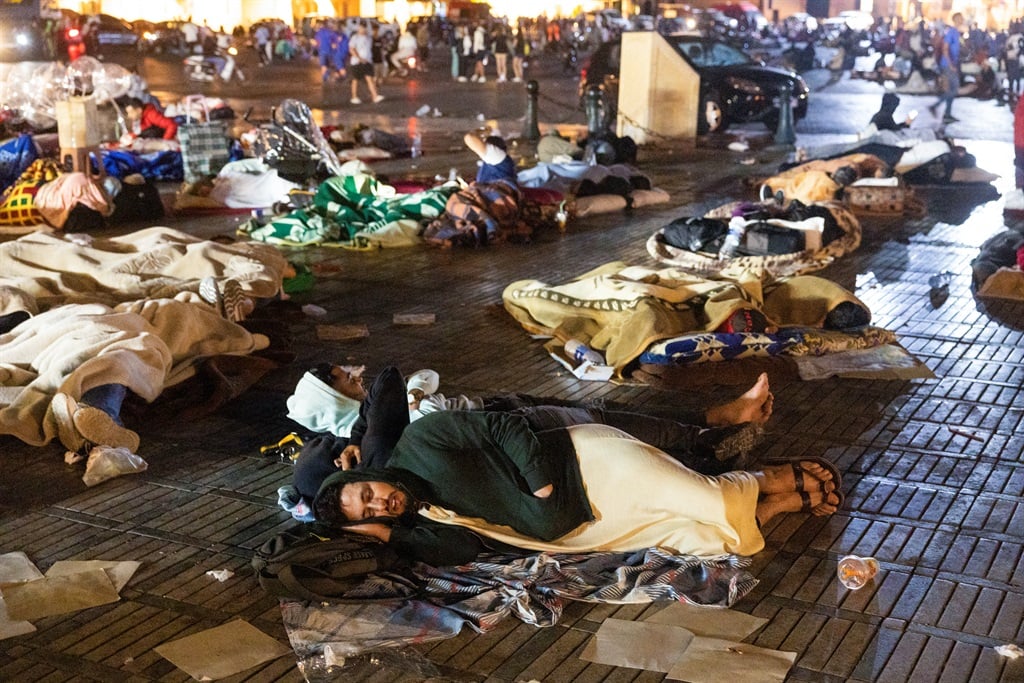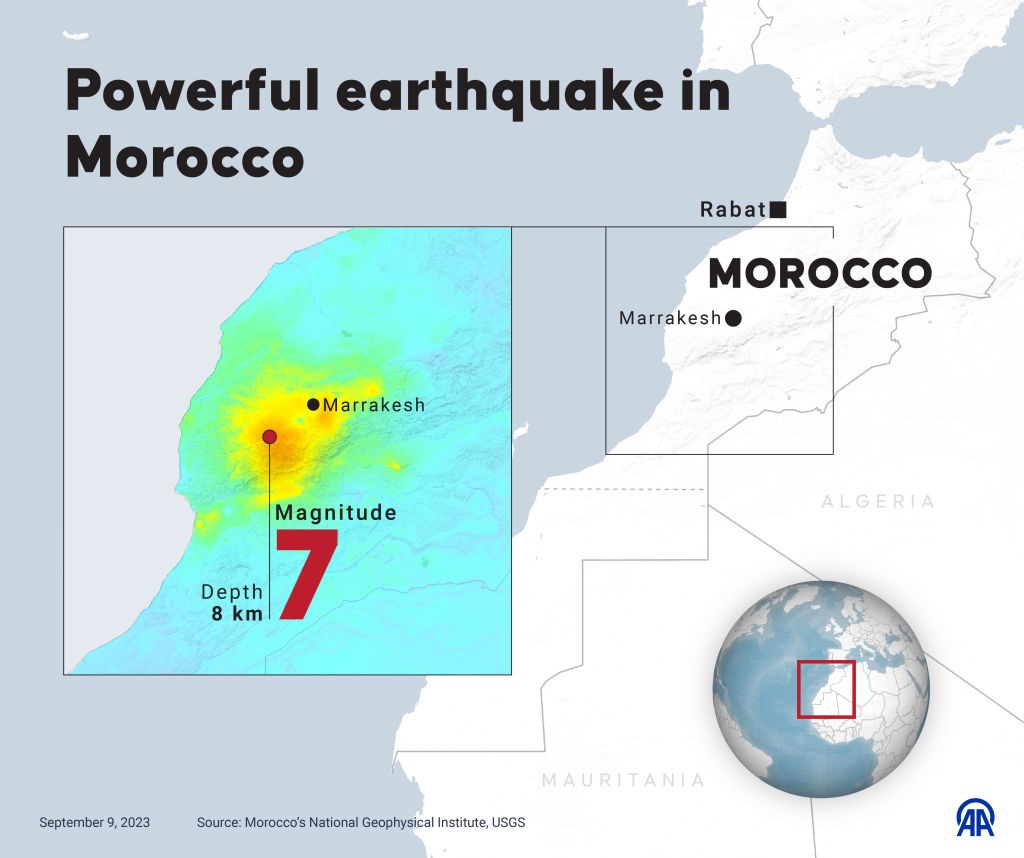- The death toll from the powerful earthquake that struck Morocco has risen to 820.
- The number of injured now stood at 679, including 205 in serious condition.
- A local official earlier said most deaths were in mountain areas that were hard to reach.
The death toll from the powerful earthquake that struck Morocco has risen to 820, state television quoted the Interior Ministry on Saturday as saying.
At least 672 people were injured, including 205 in serious condition, in the magnitude 7.2 quake that hit Morocco’s High Atlas mountains late on Friday night, it added, destroying buildings and sending residents of major cities rushing from their homes.
A local official earlier said most deaths were in mountain areas that were hard to reach.
Residents of Marrakech, the nearest big city to the epicentre, said some buildings had collapsed in the old city, a UNESCO World Heritage site. Local television showed pictures of a fallen mosque minaret with rubble lying on smashed cars.
The Interior Ministry urged calm, saying in its televised statement on the death toll that the quake had hit the provinces of Al Haouz, Ouarzazate, Marrakech, Azilal, Chichaoua and Taroudant.
Montasir Itri, a resident of the mountain village of Asni near the epicentre, said most houses there were damaged.
“Our neighbours are under the rubble and people are working hard to rescue them using available means in the village,” he said.
Further west, near Taroudant, teacher Hamid Afkar said he had fled his home and felt aftershocks.
“The earth shook for about 20 seconds. Doors opened and shut by themselves as I rushed downstairs from the second floor,” he said.
Morocco’s geophysical centre said the quake struck in the Ighil area of the High Atlas with a magnitude of 7.2. The US Geological Survey put the quake’s magnitude at 6.8 and said it was at a relatively shallow depth of 18.5 km.
Ighil, a mountainous area with small farming villages, is about 70 km southwest of Marrakech. The quake struck just after 22:00.
The earthquake is Morocco’s deadliest since a 2004 tremor near Al Hoceima in the northern Rif mountains killed over 600 people.
The United Nations stood ready to help the Moroccan government in “its efforts to assist the impacted population”, UN spokesperson Stephane Dujarric said in a statement.
Marrakech damage
In Marrakech, some houses in the tightly packed old city had collapsed and people were working hard by hand to remove debris while they waited for heavy equipment, said resident Id Waaziz Hassan.
Footage of the medieval city wall showed big cracks in one section and parts that had fallen, with rubble lying on the street.
Another Marrakech resident, Brahim Himmi, said he saw ambulances coming out of the old town and many building facades damaged. He said people were frightened and were staying outside in case of another quake.
“The chandelier fell from the ceiling and I ran out. I’m still in the road with my children and we’re scared,” said Houda Hafsi, 43, in Marrakech.
Another woman there, Dalila Fahem, said there were cracks in her house and damage to her furniture. “Fortunately I hadn’t gone to sleep yet,” she said.
People in the capital city of Rabat, about 350 km north of Ighil, and in the coastal town of Imsouane, about 180 km to its west, also fled their homes, fearing a stronger quake, according to Reuters witnesses.
In Casablanca, some 250 km north of Ighil, people who spent the night in the streets were too scared to return to their homes.
“The house rocked aggressively, everyone was scared,” said resident Mohamed Taqafi. “I thought it was only my house that was moving because it’s fragile and old. I heard people screaming, everyone went out of their houses.”
Videos shared on social media of the immediate aftermath of the quake, which Reuters could not immediately verify, showed people fearfully running out of a shopping centre, restaurants and apartment buildings and congregating outside.



